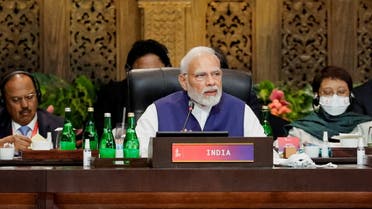Narendra Modi-Led NDA Falls Short of Majority Mark in Rajya Sabha: Implications and Strategic Shifts
The Narendra Modi-led National Democratic Alliance (NDA) has experienced a significant shift in its political landscape within the Rajya Sabha. The recent retirement of four nominated members—Rakesh Sinha, Ram Shakal, Sonal Mansingh, and Mahesh Jethmalani—has led to a reduction in the NDA's strength, bringing its total to 101 seats. This shortfall highlights the complex dynamics of maintaining a majority in India's upper house of Parliament and underscores the strategic importance of alliances and upcoming elections.
The Current Scenario
As the BJP's tally now stands at 86 seats within the Rajya Sabha, the NDA's overall strength falls short of the majority mark of 113 in the 245-member House. This new development means that the government must rely on the support of non-NDA parties and independent members to pass crucial legislation and maintain political stability.
The Rajya Sabha's current total strength is 225 members, with the opposition bloc led by the Congress holding 87 seats. The Congress itself has 26 seats, with other key opposition parties like the Trinamool Congress (13 seats), Aam Aadmi Party (10 seats), and Dravida Munnetra Kazhagam (10 seats) forming a significant counterweight to the ruling alliance.
The Role of Key Non-NDA Allies
Given the current numbers, the BJP and the NDA will need to garner support from non-NDA parties. Key players include:
- YSR Congress (YSRCP): Led by Jagan Mohan Reddy, the YSRCP has previously offered issue-based support to the BJP. This party's backing will be crucial for the NDA in navigating the legislative process.
- All India Anna Dravida Munnetra Kazhagam (AIADMK): As a former ally in Tamil Nadu, AIADMK's support could be pivotal for the NDA.
- Biju Janata Dal (BJD): Historically, the BJD under Naveen Patnaik has lent support to the BJP. However, following a tough electoral battle in 2024, which saw Patnaik lose his chief ministerial position to the BJP, the BJD has declared it will no longer support the BJP.
This dependency on non-NDA allies emphasizes the necessity for strategic negotiations and alliance-building to ensure legislative success.
Vacant Seats and Upcoming Elections
Currently, there are 20 vacant seats in the Rajya Sabha, with 11 of these seats set for elections later this year. These vacancies include:
- Maharashtra (2 seats)
- Assam (2 seats)
- Bihar (2 seats)
- Haryana (1 seat)
- Rajasthan (1 seat)
- Madhya Pradesh (1 seat)
- Telangana (1 seat)
- Tripura (1 seat)
Additionally, four seats from Jammu and Kashmir are vacant, with elections anticipated following a Supreme Court directive to hold Assembly elections in the region by September 30.
Strategic Implications for the BJP
The reduction in the NDA's strength in the Rajya Sabha necessitates a strategic recalibration for the BJP. The party must focus on:
- Alliance Building: Strengthening ties with key regional parties and independent members to secure their support on critical issues.
- Legislative Strategy: Prioritizing and timing legislative initiatives carefully to ensure successful passage with the available support.
- Upcoming State Elections: Winning key state elections, such as those in Maharashtra and Haryana, will be crucial in filling vacant Rajya Sabha seats and bolstering the NDA's numbers.
The Opposition's Stance
The opposition, led by the Congress, sees this development as an opportunity to consolidate its position and challenge the BJP more effectively in the upper house. The upcoming elections in various states provide the opposition with a chance to increase its strength and potentially claim the Leader of the Opposition post in the Rajya Sabha, a significant position for influencing legislative proceedings.
Conclusion
The retirement of four nominated members from the Rajya Sabha has highlighted the delicate balance of power within India's upper house of Parliament. For the NDA, this marks a period of strategic adjustments, alliance-building, and focused electoral efforts. For the opposition, it presents an opportunity to strengthen its position and challenge the ruling coalition more effectively. The political maneuvers and upcoming elections will be crucial in shaping the future legislative landscape of the Rajya Sabha.

Comments
Post a Comment